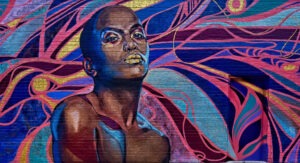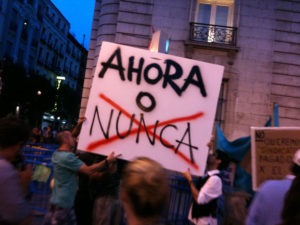January 30, 2016; New York Times
The Somali community in the Twin Cities, Minneapolis and St. Paul, has been a target for those recruiting youth for terrorist groups. Over 22 men have left the state in the last eight years to fight in Syria with militants. At the same time, the Somali community has developed a historic and strong relationship with local law enforcement. Now, these cities, along with Los Angeles and Boston, are part of a federal pilot project started to help eliminate extremism.
Building Community Resilience is the name of the federal project, funded by the Department of Justice. The goal is to bring together community representatives, public safety officers, and religious leaders to be proactive in addressing radicalization to violence. As part of the federal grant program, nonprofits in the Twin Cities area had until the end of January to apply for money for their youth programs. Locally in Minnesota, the federal money is overseen by Youthprise, a nonprofit intermediary that supports youth-serving nonprofits in Minnesota, as an incubator, capacity builder, and relationship broker.
Sign up for our free newsletters
Subscribe to NPQ's newsletters to have our top stories delivered directly to your inbox.
By signing up, you agree to our privacy policy and terms of use, and to receive messages from NPQ and our partners.
Some of these programs focusing on the Minnesota Somali community were highlighted in a recent New York Times article:
- The Confederation of Somali Community in Minnesota is a nonprofit serving Somali immigrants with resettlement services, promoting full participation in society, while keeping their culture. The executive director, Mohamud Noor, said the grant money would be used to hire more counselors who could connect with the youth and then help strengthen the youth connection to the community and their neighborhood. One of the CSC programs is Parents Connection, a parent-led program based on early intervention in a linguistically or culturally accessible format.
- Average Mohamed is a nonprofit designed to counter extremism with plain talk, because it is “an average guy who turns average people into extremists.” The founder is Mohamed Ahmed, a Somali-American gas station owner in Minneapolis. “Muslims are the biggest recipients of propaganda, and we have to fight back with our own,” said Ahmed. One strategy of Average Mohamed is the use of cartoons to begin dialogues with young children. The organization uses the cartoons to explain extremist ideologies as it seeks to contrast them with Islamic beliefs. (After extensive discussion, his nonprofit did not apply for funds, due to the lack of a grant writer and the application requirements.)
- The West Bank Athletic Club comprises 90 youth playing soccer currently, with a waiting list of 200. Ahmed Ismail of the WBAC says, “I’m just doing it to save my community…all I care about is to help those kids to achieve their goals, to be successful, to become a good citizen.”
Nonprofits are often actively involved in solving community challenges. These programs in the Minneapolis-St. Paul area work together with other similar nonprofits, each with a different focus. As a direct result of the targeted recruiting in the Somali-American community in the Twin Cities, the entire community has taken steps to proactively reduce the appeal of the extremists who recruit from their community.—Jeanne Allen











